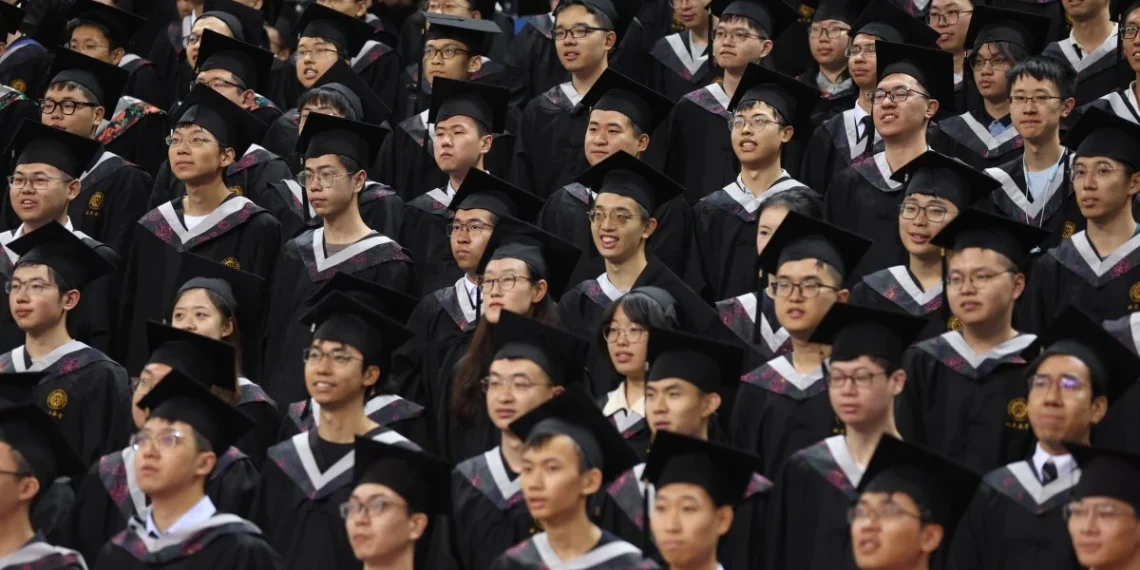HUNAN (Realist English). After falling short on China’s notoriously difficult national college entrance exam in June, Lu Jie secured a place in a computer science and technology program at a lesser-known polytechnic university in Hunan province. The choice, Lu admits, was driven less by aspiration and more by necessity.
“Top-tier schools had too many applicants for this major, so I had to settle for a lower-ranked one,” he said.
Lu’s story reflects a growing trend across China: students and families are prioritizing job prospects over academic prestige. This year’s gaokao results — a pivotal moment in the lives of over 10 million students — have seen a shift toward practical majors like computer science, artificial intelligence, and engineering, even if that means attending lower-tier institutions.
The driver behind this shift is clear. With 12.22 million university graduates flooding the job market in 2025, employment pressure is intensifying. A cooling economy, cuts in private-sector hiring, and rising youth unemployment have prompted students to make increasingly pragmatic choices.
According to Xiong Bingqi, director of the 21st Century Education Research Institute in Beijing, up to 80% of students have their applications filled out by parents, often based on perceived market demand rather than the student’s interests or strengths.
“Computer science and AI are hot. Even mechanical engineering is back in demand, thanks to the robotics boom,” said Cindy Cheng, a mother from Wuhan. Her son also took the gaokao this year and was guided to apply for electrical engineering — not his passion, but a “safe choice.”
Elite universities are feeling the shift. Peking University, one of China’s most prestigious institutions, reopened admissions for several underfilled majors in Hubei province, including philosophy and humanities — a rare occurrence for the country’s academic elite.
Meanwhile, newly founded institutions like Greater Bay University and Fuyao University of Science and Technology are attracting attention by marketing themselves as job-oriented. Both have set entry standards comparable to China’s top universities but focus heavily on employability.
For Xiong, the trend is concerning. “We’re seeing a short-sighted, utilitarian approach to education,” he warned. “Success doesn’t come from chasing trends — it comes from long-term passion and commitment. If you’re good in your field, you’ll find opportunities. If you’re not, no ‘hot major’ will save you.”
Still, families are focused on numbers. In June, China’s urban youth unemployment rate (ages 16–24, excluding students) stood at 14.5%, according to the National Bureau of Statistics. For those aged 25–29, it was 6.7%. The bureau noted that domestic demand remains weak, and external uncertainties — including global economic conditions — continue to weigh on hiring, particularly for new graduates.
As the gap widens between academic ambition and employment reality, China’s next generation faces tough choices — with practicality increasingly trumping prestige.


















